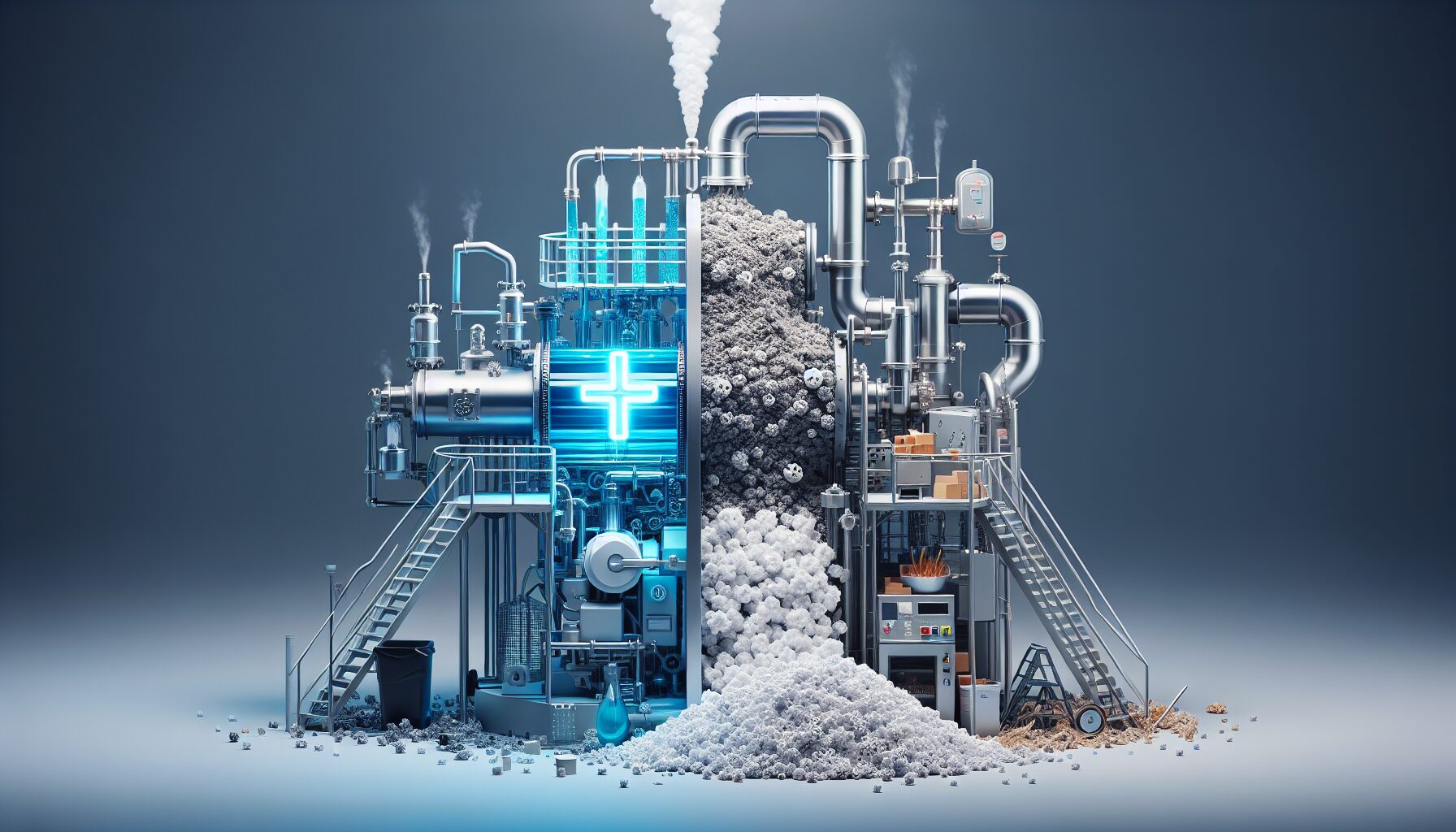The Machinery of Purity: How Cleansing Becomes a Form of Harm
In a world obsessed with cleanliness, the quest for purity often conceals an undercurrent of danger. While maintaining hygiene is essential for health, the pursuit of an immaculate existence can sometimes lead to unintended harm, both environmentally and socially.
The Environmental Impact of Over-Cleansing
The demand for hygiene products has escalated dramatically over recent decades. As we strive for sterility in our homes and workplaces, biodegradable and eco-friendly solutions are often cast aside in favor of their more potent chemical counterparts.
- Many household cleaning products contain dangerous chemicals such as ammonia, chlorine, and phthalates, which can contaminate water supplies and harm aquatic life.
- An obsession with antibacterial soaps and sanitizers contributes to increased levels of antibiotic-resistant bacteria.
- Overuse of personal care products with microbeads clogs waterways and endangers marine species.
“The problem with striving for germ-free environments is not just the ecological implications but the fact that exposure to some bacteria is crucial for developing robust immune systems,” notes Dr. Allison Greene, an environmental scientist.
The Psychological Toll of Purity Culture
Beyond its environmental implications, the drive for purity infiltrates our psyche, pressurizing individuals to meet unattainable standards. This phenomenon is particularly evident in the beauty and wellness industries.
- The quest for flawless skin leads to the overuse of skincare products that may ultimately cause more harm than good, disrupting the skin’s natural barrier.
- In fitness, the obsession with achieving a “clean” diet can morph into orthorexia, an eating disorder defined by an unhealthy fixation on healthy food.
- The push for detoxication through extreme cleanses or fad diets often lacks scientific backing and can lead to malnutrition and other health issues.
“Purity has become a status symbol,” explains Sarah Thompson, a sociologist studying cultural trends. “This has less to do with health and more to do with social signaling, where cleanliness is equated with virtuousness and moral superiority.”
The Societal Ramifications of Purity
The machinery of purity extends to societal norms, where notions of cleanliness are intertwined with cultural and racial undertones. Historically, cleanliness has been used as a proxy for civilization and moral worth, often marginalizing certain groups.
“The idea that ‘cleanliness is next to godliness’ has been wielded as a tool of colonialism and discrimination,” notes historian Dr. Emily Foster. “It perpetuates a division between those deemed pure and those considered impure.”
- Communities are stigmatized based on stereotypes of hygiene and lifestyle, perpetuating existing inequalities.
- Policies mandating public sanitation can disproportionately target marginalized populations under the guise of health and safety.
Even contemporary policies can echo this legacy, reinforcing harmful stereotypes and exacerbating disparity.
Moving Towards a Balanced Approach
To counteract the adverse effects of the purity machine, it is essential to adopt a more balanced and inclusive perspective on cleanliness. This involves recognizing the limits of our quest for purity and understanding the broader implications of our choices.
- Consider utilizing natural cleaning agents like vinegar and baking soda, which are effective and environmentally friendly.
- Promote diversity in hygiene and beauty standards, valuing features that reflect various cultures and identities.
- Encourage policies that address health and safety without imposing unattainable purity standards.
The machinery of purity, fueled by marketing and social pressures, risks spiraling into an obsession that does more harm than good. As we become more mindful of our habits and their implications, a healthier definition of cleanliness—one that encompasses sustainability, inclusivity, and well-being—can emerge.
“True cleanliness means more than just an absence of dirt,” reflects Dr. Greene. “It’s about respecting our body, our community, and the planet.” By reconsidering the meaning of cleanliness, we open doors to a fuller, healthier way of life—one where cleanliness aligns with balance rather than extremity.
